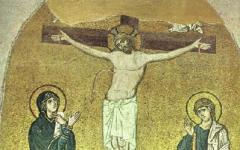Уровень: начальный средний и выше.
“Великий Гэтсби ” знаменитого американского писателя Френсиса Скотта Фитцджеральда – это шедевр американской литературы. Я познакомился с этим удивительным романом в университете, когда мы изучали американскую литературу. Тогда я прочитал “Великого Гэтсби ” в оригинале, на английском языке, и хочу вам сказать, что книга читается довольно легко, просто, поэтому в самом начале статьи я указал уровень “начальный средний” – даже если вы пока не чувствуете себя свободно в английском, вы можете осваивать эту знаменитую книгу со словарем.
Я не буду сейчас вдаваться в психолого-социальные аспекты этого произведения – вы сделаете свои собственные выводы в процессе чтения. Есть в книге и любовь, и мечты, и лицемерие, и слепое желание следовать стаду – все атрибуты человечества, как прекрасные, так и те, что вызывают у нас презрение и негодование.
Ниже я привожу краткое описание “Великого Гэтсби” на английском языке – прочтите и “разомните” свой английский .
Читайте “Великого Гэтсби” не спеша, с удовольствием. Вы, вероятно, помните: чем медленнее мы осваиваем английский язык , тем быстрее мы прогрессируем в английском .
The Great Gatsby
is a 1925 novel written by American author F. Scott Fitzgerald
that follows a cast of characters living in the fictional town of West Egg on prosperous Long Island in the summer of 1922. The story primarily concerns the young and mysterious millionaire Jay Gatsby and his quixotic passion for the beautiful Daisy Buchanan. Considered to be Fitzgerald’s magnum opus, The Great Gatsby
explores themes of decadence, idealism, resistance to change, social upheaval, and excess, creating a portrait of the Jazz Age or the Roaring Twenties that has been described as a cautionary tale regarding the American Dream .
Fitzgerald , inspired by the parties he had attended while visiting Long Island’s north shore, began planning the novel in 1923 desiring to produce, in his words, “something new -something extraordinary and beautiful and simple and intricately patterned.” Progress was slow with Fitzgerald completing his first draft following a move to the in 1924. His editor, Maxwell Perkins, felt the book was too vague and convinced the author to revise over the next winter. Fitzgerald was ambivalent about the book’s title, at various times wishing to re-title the novel “Trimalchio in West Egg” .
First published by Scribner’s in April 1925, The Great Gatsby received mixed reviews and sold poorly; in its first year, the book sold only 20,000 copies. Fitzgerald died in 1940, believing himself to be a failure and his work forgotten. However, the novel experienced a revival during World War II, and became a part of American high school curricula and numerous stage and film adaptations in the following decades. Today, The Great Gatsby is widely considered to be a literary classic and a contender for the title “Great American Novel “. The book is consistently ranked among the greatest works of American literature . In 1998 the “Modern Library ” editorial board voted it the best American novel and the second best novel in the English language.
Ник Каррауэй ведает читателю о давно минувших событиях, свидетелем которых он был. В Уэст Эгге он когда-то снимал жилье. В числе достаточно богатых и вольготных соседей были его сестра Дэйзи, зять Том и подруга семьи Джордан. С последней у рассказчика возникают любовно-интимные отношения. Новоиспеченная пассия ведает герою о любовных похождениях Тома с миссис Миртл. Том отправляется к любовнице в Нью-Йорк, куда берет с собой Ника. Здесь Ник оказывается в списке приглашенных на вечеринку, организованную мистером Гэтсби. Хозяин дома оказывается давним приятелем Ника. В ходе событий выясняется, что он пять лет назад был ухажером Дэйзи. Об этом становится известно и Тому. После очередной вечеринки под колесами автомобиля Джея погибает Миртл Уилсон. Том осведомлен о тайных отношениях между его женой и мистером Гэтсби. Он сообщает мистеру Уилсону местонахождение потенциального виновника аварии. Тот убивает Джея, а затем и себя. После похорон Ник анализирует все случившееся.
Francis Scott Fitzgerald
The Great Gatsby
In my younger and more vulnerable years my father gave me some advice that I’ve been turning over in my mind ever since.
“Whenever you feel like criticizing any one,” he told me, “just remember that all the people in this world haven’t had the advantages that you’ve had.”
He didn’t say any more, but we’ve always been unusually communicative in a reserved way, and I understood that he meant a great deal more than that. In consequence, I’m inclined to reserve all judgments, a habit that has opened up many curious natures to me and also made me the victim of not a few veteran bores. The abnormal mind is quick to detect and attach itself to this quality when it appears in a normal person, and so it came about that in college I was unjustly accused of being a politician, because I was privy to the secret grief’s of wild, unknown men. Most of the confidences were unsought-frequently I have feigned sleep, preoccupation, or a hostile levity when I realized by some unmistakable sign that an intimate revelation was quivering on the horizon; for the intimate revelations of young men, or at least the terms in which they express them, are usually plagiaristic and marred by obvious suppressions. Reserving judgments is a matter of infinite hope. I am still a little afraid of missing something if I forget that, as my father snobbishly suggested, and I snobbishly repeat, a sense of the fundamental decencies is parceled out unequally at birth.
And, after boasting this way of my tolerance, I come to the admission that it has a limit. Conduct may be founded on the hard rock or the wet marshes, but after a certain point I don’t care what it’s founded on. When I came back from the East last autumn I felt that I wanted the world to be in uniform and at a sort of moral attention forever; I wanted no more riotous excursions with privileged glimpses into the human heart. Only Gatsby, the man who gives his name to this book, was exempt from my reaction-Gatsby, who represented everything for which I have an unaffected scorn. If personality is an unbroken series of successful gestures, then there was something gorgeous about him; some heightened sensitivity to the promises of life, as if he were related to one of those intricate machines that register earthquakes ten thousand miles away. This responsiveness had nothing to do with that flabby impressionability which is dignified under the name of the “creative temperament”-it was an extraordinary gift for hope, a romantic readiness such as I have never found in any other person and which it is not likely I shall ever find again. No-Gatsby turned out all right at the end; it is what preyed on Gatsby, what foul dust floated in the wake of his dreams that temporarily closed out my interest in the abortive sorrows and short- winded elations of men.
My family has been prominent, well-to-do people in this Middle Western city for three generations. The Carraways are something of a clan, and we have a tradition that we’re descended from the Dukes of Buccleuch, but the actual founder of my line was my grandfather’s brother, who came here in fifty-one, sent a substitute to the Civil War, and started the ’J ’wholesale hardware business that my father carries on to-day.
I never saw this great-uncle, but I’m supposed to look like him-with special reference to the rather hardboiled painting that hangs in father’s office. I graduated from New Haven in 1915, just a quarter of a century after my father, and a little later I participated in that delayed Teutonic migration known as the Great War. I enjoyed the counter-raid so thoroughly that I came back restless. Instead of being the warm center of the world, the Middle West now seemed like the ragged edge of the universe-so I decided to go East and learn the bond business. Everybody I knew was in the bond business, so I supposed it could support one more single man. All my aunts and uncles talked it over as if they were choosing a prep school for me, and finally said, “Why-ye-es,” with very grave, hesitant faces. Father agreed to finance me for a year, and after various delays I came East, permanently, I thought, in the spring of twenty-two.
The practical thing was to find rooms in the city, but it was a warm season, and I had just left a country of wide lawns and friendly trees, so when a young man at the office suggested that we take a house together in a commuting town, it sounded like a great idea. He found the house, a weather-beaten cardboard bungalow at eighty a month, but at the last minute the firm ordered him to Washington, and I went out to the country alone. I had a dog-at least I had him for a few days until he ran away-and an old Dodge and a Finnish woman, who made my bed and cooked breakfast and muttered Finnish wisdom to herself over the electric stove.
It was lonely for a day or so until one morning some man, more recently arrived than I, stopped me on the road.
“How do you get to West Egg village?” he asked helplessly.
I told him. And as I walked on I was lonely no longer. I was a guide, a pathfinder, an original settler. He had casually conferred on me the freedom of the neighborhood.
And so with the sunshine and the great bursts of leaves growing on the trees, just as things grow in fast movies, I had that familiar conviction that life was beginning over again with the summer.
There was so much to read, for one thing, and so much fine health to be pulled down out of the young breath-giving air. I bought a dozen volumes on banking and credit and investment securities, and they stood on my shelf in red and gold like new money from the mint, promising to unfold the shining secrets that only Midas and Morgan and Maecenas knew. And I had the high intention of reading many other books besides. I was rather literary in college-one year I wrote a series of very solemn and obvious editorials for the Yale News -and now I was going to bring back all such things into my life and become again that most limited of all specialists, the “well-rounded man.” This isn’t just an epigram-life is much more successfully looked at from a single window, after all.
It was a matter of chance that I should have rented a house in one of the strangest communities in North America. It was on that slender riotous island which extends itself due east of New York-and where there are, among other natural curiosities, two unusual formations of land. Twenty miles from the city a pair of enormous eggs, identical in contour and separated only by a courtesy bay, jut out into the most domesticated body of salt water in the Western hemisphere, the great wet barnyard of Long Island Sound. They are not perfect ovals-like the egg in the Columbus story, they are both crushed flat at the contact end-but their physical resemblance must be a source of perpetual confusion to the gulls that fly overhead. To the wingless a more arresting phenomenon is their dissimilarity in every particular except shape and size.
I lived at West Egg, the-well, the less fashionable of the two, though this is a most superficial tag to express the bizarre and not a little sinister contrast between them. My house was at the very tip of the egg, only fifty yards from the Sound, and squeezed between two huge places that rented for twelve or fifteen thousand a season. The one on my right was a colossal affair by any standard-it was a factual imitation of some Hotel de Ville in Normandy, with a tower on one side, spanking new under a thin beard of raw ivy, and a marble swimming pool, and more than forty acres of lawn and garden. It was Gatsby’s mansion. Or, rather, as I didn’t know Mr. Gatsby, it was a mansion, inhabited by a gentleman of that name. My own house was an eyesore, but it was a small eyesore, and it had been overlooked, so I had a view of the water, a partial view of my neighbor’s lawn, and the consoling proximity of millionaires-all for eighty dollars a month.
Across the courtesy bay the white palaces of fashionable East Egg glittered along the water, and the history of the summer really begins on the evening I drove over there to have dinner with the Tom Buchanans. Daisy was my second cousin once removed, and I’d known Tom in college. And just after the war I spent two days with them in Chicago.
Her husband, among various physical accomplishments, had been one of the most powerful ends that ever played football at New Haven-a national figure in a way, one of those men who reach such an acute limited excellence at twenty-one that everything afterward savors of anticlimax. His family were enormously wealthy- even in college his freedom with money was a matter for reproach-but now he’d left Chicago and come East in a fashion that rather took your breath away; for instance, he’d brought down a string of polo ponies from Lake Forest. It was hard to realize that a man in my own generation was wealthy enough to do that.
Why they came East I don’t know. They had spent a year in France for no particular reason, and then drifted
Обзор The Great Gatsby, F. Scott Fitzgerald
ФРЭНСИС СКОТТ ФИЦДЖЕРАЛЬД «ВЕЛИКИЙ ГЭТСБИ» на английском и русском языке (билингва).
«Великий Гэтсби» — роман, который принес своему создателю мировое признание и известность.
По совам самого писателя, во время работы над романом он чувствовал в себе огромную силу, которой раньше никогда не было. Фицджеральд приступил к воплощению своего замысла в 1923 году и несколько раз тщательно редактировал и оттачивал написанное до совершенства, так как чувствовал, что именно это произведение способно принести ему настоящее признание читателей. И предчувствия не обманули его.
Произведение увидело свет в апреле 1925 года в Париже и сегодня в американской литературе занял почетное место яркого образа того времени, получившего название «Эпоха Джаза». Примечательно, что этот термин «Эпоха (или Век) Джаза» вышел из-под пера самого Фицджеральда и обозначает период в американской истории, начавшийся после окончания Первой мировой войны вплоть до периода Великой депрессии в 30-х годах.
Действие в романе разворачивается на побережье Лонг-Айленда недалеко от Нью-Йорка, где в роскошных виллах проживают миллионеры и описывает американское общество 20-х годов прошлого века. В эти годы после хаоса Первой мировой войны в Америке наступил период беспрецедентного богатства и процветания. Экономика Штатов в те годы получила огромный толчок к развитию, а «сухой закон» позволил многим подпольным торговцам спиртным очень быстро разбогатеть и стать миллионерами, так называемыми, нуворишами. Фицджеральд в своем романе с одной стороны восхищается этими предприимчивыми американцами и их неповторимым очарованием, но в то же время порицает их чрезмерное стремление к материальным благам и практически полное отсутствие моральных устоев.
Главный герой романа Ник Каррауэй, от имени которого ведется повествование, приехал со Среднего Запада в шумный и полный жизни Нью-Йорк весной 1922 года, в самый разгар Века Джаза. Он приезжает сюда в погоне за своей собственной американской мечтой и поселяется среди богачей Лонг-Айленда. Одним из соседей Ника становится таинственный миллионер Джей Гэтсби, который на всю округу славится шумными вечеринками, которые он постоянно организовывает на своей вилле. Также по соседству с Ником живет его троюродная сестра с мужем-аристократом. Ник постепенно становится частью и в то же время остается сторонним наблюдателем мира богатых – их интриг, любви, иллюзий, пороков и обманов. Став свидетелем многих событий жизни этих людей, Ник решает рассказать их историю в романе – историю о любви, бесконечных мечтаниях и трагедии, которые отражают реалии того времени и нравов.
Роман «Великий Гэтсби» в 1998 году по версии издательства «Modern Library» занял почетное второе место в списке ста лучших романов 20-го века. Начиная с 1926 года, роман неоднократно экранизировался. Последняя, пятая по счету, киноверсия романа была создана в 2013 австралийским режиссером Базом Лурманом, главные роли в которой сыграли популярные актеры — Леонардо ДиКаприо и Тоби Магуайр.
Скачать книгу — билингва (параллельное чтение) (word 1,79Мб):
ГЭТСБИ - (англ. Jay Gatsby) герой романа Ф.Скотта Фицджеральда «Великий Гэтсби» (1925). В судьбе Г. иронически переиначивается средневековый сюжет поисков священного Грааля (см. Парсифаль). Правда, странствия и подвиги Г. приводят к трагическому итогу.… … Литературные герои
Великий Гэтсби - Возможно, Вы ищете информацию об одноимённом фильме. Великий Гэтсби The Great Gatsby … Википедия
Великий Гэтсби (фильм, 2013) - Эта статья или раздел содержит информацию об одном или нескольких запланированных или ожидаемых фильмах. Содержание может меняться коренным образом по мере приближения даты выхода фильма и появления новой информации. Другие фильмы с таким же или… … Википедия
Великий Гэтсби (фильм, 1974) - Другие фильмы с таким же или схожим названием: см. Великий Гэтсби (фильм). Великий Гэтсби The Great Gatsby Жанр … Википедия
Великий Гэтсби (фильм) - Великий Гэтсби (фильм, 1926) американская драма 1926 года, реж. Герберт Бренон. Великий Гэтсби (фильм, 1949) американская драма 1949 года, реж. Эллиотт Наджент. Великий Гэтсби (фильм, 1974) американская драма 1974 года, реж.… … Википедия
ВЕЛИКИЙ ГЭТСБИ - (The Great Gatsby) США, 1974, 144 мин. Ретро мелодрама. Эта картина отразила и в какой то степени даже повлияла на возникшую в начале 70 х годов моду на «ретро»: старые фильмы, полузабытые мелодии, поражавшие в прошлом элегантностью или… … Энциклопедия кино
Фицджеральд, Фрэнсис Скотт - В Википедии есть статьи о других людях с такой фамилией, см. Фицджеральд. Фрэнсис Скотт Фицджеральд Francis Scott Fitzgerald … Википедия
Фицджеральд Фрэнсис Скотт - Фицджеральд (Fitzgerald) Фрэнсис Скотт (24.9.1896, Сент Пол, штат Миннесота, √ 21.12.1940, Голливуд), американский писатель. В 1913√17 учился в Принстонском университете. В романе «По эту сторону рая» (1920) Ф. первым в амер. литературе обратился …
Фицджеральд - I Фицджеральд (Fitzgerald) Фрэнсис Скотт (24.9.1896, Сент Пол, штат Миннесота, – 21.12.1940, Голливуд), американский писатель. В 1913–17 учился в Принстонском университете. В романе «По эту сторону рая» (1920) Ф. первым в амер. литературе … Большая советская энциклопедия
Фицджеральд Фрэнсис Скотт - Фицджералд (Fitzgerald) (1896 1940), американский писатель. В психологическом романе «Великий Гэтсби» (1925), где «доверие лишь голосу сердца» допускает оправдание собственного индивидуализма и стяжательских амбиций, нравственно развенчивается… … Энциклопедический словарь
Фицджеральд (Fitzgerald), Фрэнсис Скотт - (24.IX.1896, Сент Пол, Миннесота 21.XII.1940, Голливуд, Калифорния) прозаик. Учился в Принстонском университете. В годы первой мировой войны лейтенант тыловой части, расположенной в Алабаме. Здесь произошла встреча Фицджеральда с его будущей… … Писатели США. Краткие творческие биографии
Книги
- Великий Гэтсби. Ночь нежна (подарочное издание) , Фрэнсис Скотт Фицджеральд. Подарочное издание в переплете из черного шелка с золотым и серебряным тиснением и серебряным трехсторонним обрезом. В сборник вошли два наиболее известных и талантливых произведения… Купить за 5883 руб
- Великий Гэтсби , Фрэнсис Скотт Фитцджеральд. Фрэнсис Скотт Фицджеральд - писатель, возвестивший миру о начале нового века - «века джаза», автор романов "Великий Гэтсби", "Ночь нежна", "Последний магнат" - принадлежит к числу самых…








